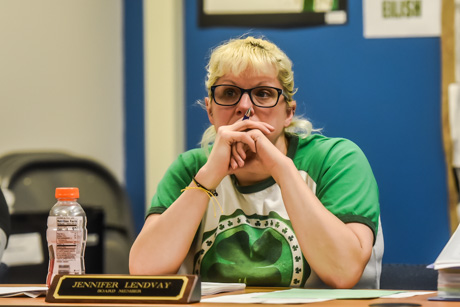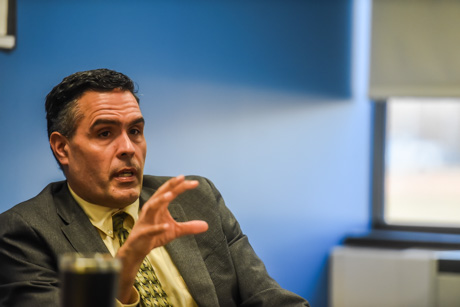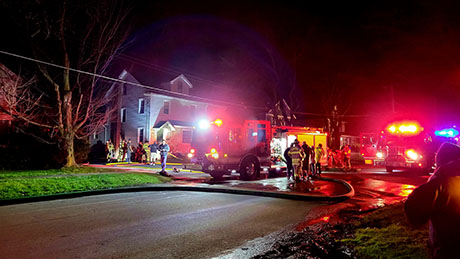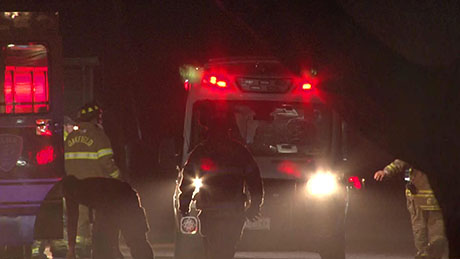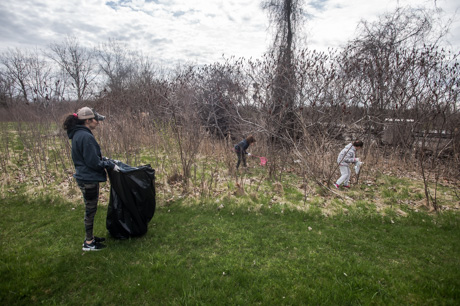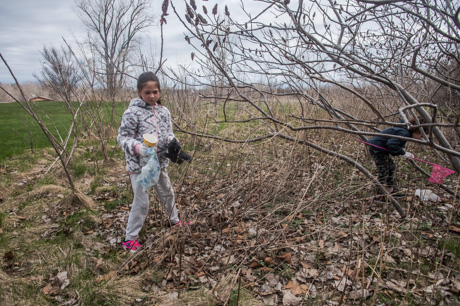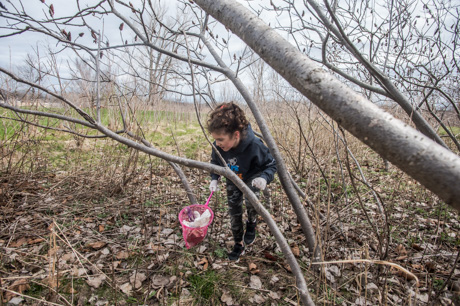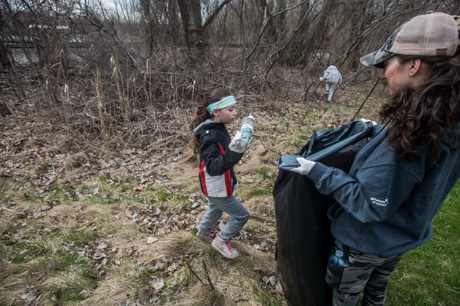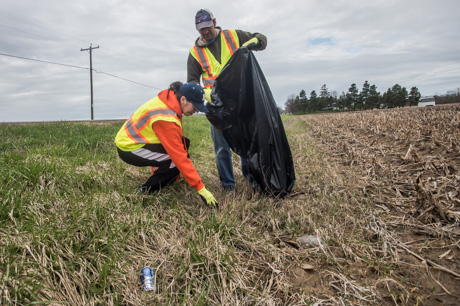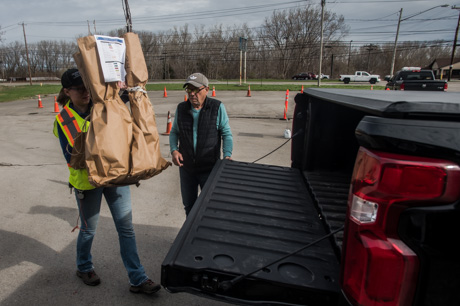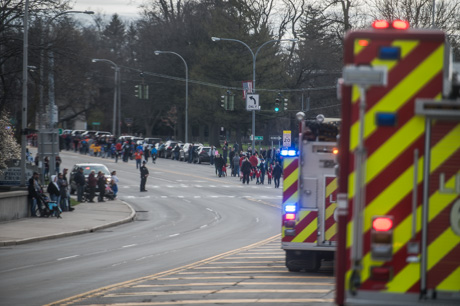John Marucci would have loved to have had a 0 percent tax increase, falling in line with the district’s last two years, but student needs prevailed, he says.
“Unfortunately, we just couldn’t get there,” he said this past weekend in response to The Batavian’s questions to the board. “I’m very happy that (Superintendent Jason Smith and Business Administrator Scott Rozanski) were able to get us to 1 percent. The BCSD BOE and administration have saved Batavia city property owners $25 to $30 million over the past seven to 10 years.”
Those savings, according to Rozanski, were calculated based on small or no tax rate increases over the last decade.
Marucci and fellow board members Barbara Bowman and Jennifer Lendvay were not able to respond to questions before the weekend, they said, and those answers are being provided here.
Additional teaching positions are federally funded with stimulus funds, Marucci said, and will “help to address the students with a learning loss due to Covid over the past couple of years.” This budget was not easy, he said.
“And a lot of hours were put in by all to get it to where we are now,” he said. “I think it’s a good budget for the students and taxpayers.”
That “learning loss” is at the top of the other two board members’ concerns as well. Transitioning out of a pandemic has meant discovering how hybrid and remote learning affected students during the last two years, Lendvay said.
“A vast number of our students in the elementary and intermediate level are receiving assistance in literacy, math and reading,” she said. “We are fortunate to be able to utilize federal funds to focus directly on this issue. While the kids are back in the swing of ‘normal’ school again, it was important to maintain the programs that the students want to take advantage of.”
Those programs include extracurricular activities, athletics, arts, drama, music, Advanced Placement and ACE and academic, special education and counseling support services, she said. All of these offerings are being maintained within the current budget she said.
Bowman spoke not only a board member but as a counselor “who oftentimes works with marginalized people within our district.” Intervention and literacy are important pieces of addressing student losses in learning, she said, and she is very supportive of using federal Covid relief funds “to help all our students catch up and move forward.”
“I worked hard at this process and was grateful to reduce overall tax increase to 1%, keeping it under the state tax cap,” Bowman said.
Lendvay emphasized that the budget decision was not made lightly.
“We understand the financial challenges the community and taxpayers are facing during this time and worked diligently to get our figure well below the 1.62% tax cap,” she said. “Looking at the past 10 years we have been able to adjust to a 0% tax cap half of the time; unfortunately with the rising cost in utilities and health insurance, we did not see that as an obtainable figure for this budget.”
“It is important to understand that while this is education, it is still a business, and sometimes businesses are forced to make tough financial decisions,” she said. “This is the decision of the BOE and again, I stand behind it completely.”
To recap the board’s vote at this month’s recent meeting, it was to approve the $54,802,593 budget for 2022-23. That was an increase of $2,705,932 from the current budget or a 5.194 percent increase. That includes a tax levy of $19,688,898, which is an increase of $1.94 million, or a 1 percent property tax increase. The board unanimously approved/adopted the budget. It will go up for a public vote by district residents on May 17.
The levy put the district under the tax cap of 1.62 percent by $120,776, Superintendent Jason Smith said. Expenses reflect the signs of inflation and increased utility and medical insurance costs, he said.
Up to four new positions are “100 percent federally funded” through stimulus funds, he said, and two other positions have been added due to increased enrollment. Those stimulus funds are designated to specifically address the learning loss of students as a result of the reduced time in school from 2020 through 2021, he said.
“The District is currently engaged in a formal study to determine future staffing needs based on enrollment trends,” Smith said. “While our students were on a hybrid program last year, we are still in the process of addressing learning loss and making sure our students are on pace with essential math and literacy skills. We appreciate the additional federal funds that have allowed us to provide additional and needed support for our students.”
There was an additional $2.08 million in state aid for this next year’s budget, however, overall revenues are flat, he said. The appropriated fund balance received a one-time boost of $520,800 from the stimulus funds.
City schools board members and administration staff worked on the budget for the past several months, which has resulted in this proposed $54.8 million budget, “that we are pleased to present to our community for review,” he said.
“This budget closely aligns to our mission, vision, and core beliefs of the Batavia City School District and preserves all existing programs while recognizing the ongoing financial challenges,” he said. “In addition, we are using our federal funds (COVID relief) to address learning loss in our students, focusing on intervention and literacy at the elementary grade level.”
He listed several program components that will remain “firmly in place,” including:
● All extracurricular activities and athletics
● Advanced Placement and dual GCC enrollment courses
● Music, arts, and drama
● Counseling services
● Academic supports
● Special Education services
● School safety, including our School Resource Officer
● Gifted and Talented programs (ACE)
“The Board of Education and I fully embrace our important roles as financial stewards, along with the importance of balancing an exceptional and well-rounded educational program with the needed support from our community,” he said. “This budget is a community partnership, with the tax levy under our allowable cap, as it has been for the past several years.”
In other school news, Tim Batzel, Alexander Central School’s business administrator, also addressed the issue of “learning loss” due to the remote, off-campus learning that students faced during the last two years of a pandemic.
“The goal is to continue addressing learning loss, and the social and emotional impacts caused by pandemic to all students,” Batzel said in response to The Batavian's questions.
Alexander’s proposed 2022-23 budget is $19,404,099, which is a 1.18 percent increase from the current budget. This includes a 0 percent tax levy increase, which falls below the 2.26 percent tax cap. The district’s revenues increased by 3.98 percent and there are no additional or eliminated positions in the budget, he said.
All school budget votes are on May 17.
2022 File photos of Jennifer Lendvay, top, and Superintendent Jason Smith during a Batavia City Schools Board of Education meeting. Photos by Howard Owens.




